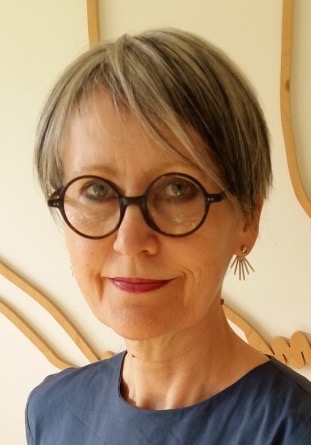In Celebration Of Persistence.
- Elise V Allan

- Jun 10, 2020
- 3 min read
first published January 2019

I like to call it determination.
When I was in my mid twenties there was an event that confirmed the benefits of being persistent. I’d returned from my year studying in Cyprus, and was feeling bereft; I missed the countryside, the sea, living communally with the other artists, being wakened by sheep bells and cockerels, and painting in my studio. I had a job at the Edinburgh festival working as a wealthy American artist’s assistant. The festival people I passed every day didn’t respond to my nodding and saying hello; my employer was the only person who spoke to me. There were no mobile phones or Internet then; I felt isolated. As I was usually working fifteen hour days, I didn’t get time to bank my fortnight’s pay. Then my purse, with my earnings in it, was stolen. I had thirty pounds left in the bank.
I decided I would spend more than half of it on a ticket for Verdi’s Requiem, conducted by Claudio Abbado. It’s one of my favourite pieces of music – there’s nothing quite like breaking out in a sweat being blasted by a rousing requiem – and Claudio Abbado was a bit of a hero. I would have something to look forward to. But when I got to the ticket office, it was sold out. Bitter disappointment. Then a young German man approached me with a tale of how he’d bought a lot of tickets, but had to return to Germany quickly as his mother was ill. Were any of his tickets what I was looking for? He had a £17 ticket for Verdi’s Requiem at the Usher Halls, and gave it to me for £15. I was delighted.
The next night I set out to the Usher Halls. The concert started at 7.00pm but surprisingly, at 6.30pm there was only one other woman there. I commented to her that it was odd that it was so quiet. “Well, it doesn’t start till 7.30,” she replied, so I checked my ticket, and realised that it was for a different concert in another hall. “What will I do,” I wailed, “I don't even know this composer!” “Well,” said the lovely woman, calmly, ” You could run up there and see if anyone wants to buy your ticket.” I did that, found a delighted buyer, and with my £15 back in my purse, I ran back to the Usher Halls to join the very long queue of people looking for returns. It appeared hopeless, and I was blurting out my misfortunes to complete strangers in the queue. Then there was a little buzz. A representative of the sponsors had bought up the tickets for the front rows of the Circle and were handing them out to the people in the queue. I was given a seat in the middle of the front row of the Circle. The concert was glorious. And on the way out, I bumped into Claudio Abbado and got his autograph.
If my mother had hoped that life would teach me to be less stubborn, this was not her moment. That experience was a gift, countering what Mark Nepo, in a podcast, calls ‘easyism’, the fatalistic view that if something doesn’t come easily “It’s not for you.” For some, it’s the old idea, “What’s for you won’t go by you.” And with the belief that it’s not going to ‘go by you’, there can be an expectation that you don’t have to strive for it. Why make an effort if it’s meant for you all along.
It crops up again in New Age thinking; “the Universe will give you what you want, to let you know when you’re doing the ‘right’ thing.“ If success is not falling into your lap, by this thinking, “it’s a sign you’re on the wrong track.” I’ve heard statements like these spoken by people who are considering giving up, or resisting starting creating. But while I have no objection whatsoever to admiration and extra cash, I don't have expectations of being told by the Universe whether it approves of my choices. Applause and financial remuneration are rarely what motivate people to make art or write. Yet somewhere along the line we can get persuaded that those are the indicators of doing something worthwhile.
Mark Nepo referred to a Ruskin quote, “The highest reward for a person’s toil is not what they get for it, but what they become by it.” And when I think back to that performance of Verdi’s Requiem, it was magnificent, but the lasting wonderful thing about it was learning that sometimes it’s worth it to go the extra mile. To do as much as we can for something we care about; for with or without a moment of grace, we become more.
The Mark Nepo podcast is an interview with Jonathan Fields and can be found here
Image of John Ruskin




Comments